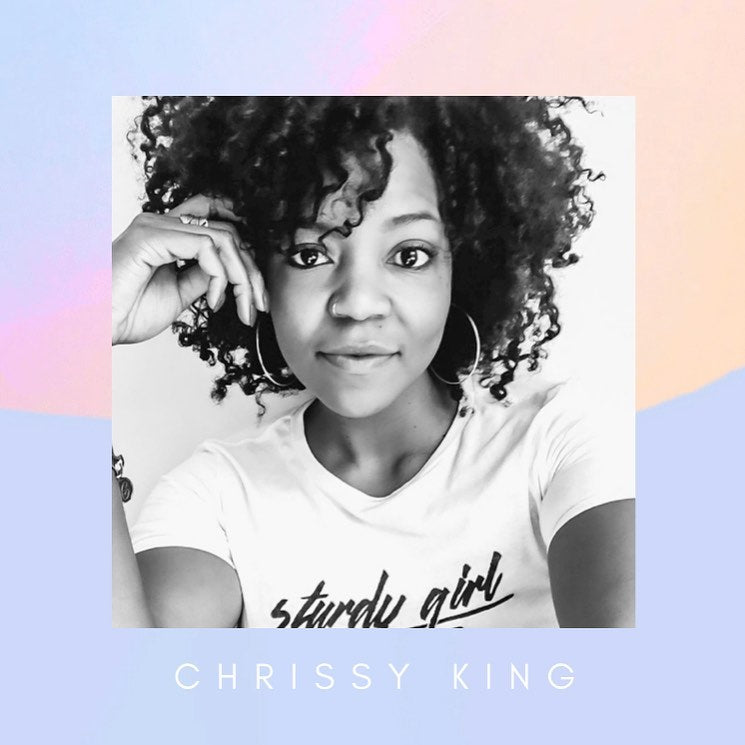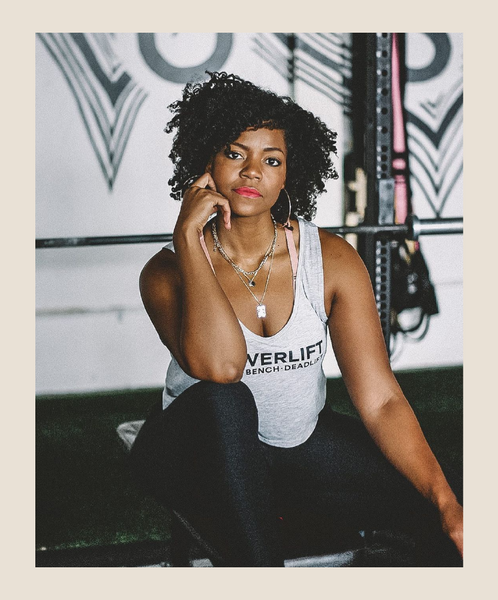How to Make the Fitness Industry Inclusive
If you’ve ever scrolled through fitness posts and exercise tips on Instagram, you’ve probably noticed the abundance of before and after pictures and diet culture promises. And you wouldn’t be alone. “This industry is hyperfocused on health centred around a look or a size”, fitness coach Chrissy King acknowledged.
Which is why her goals as a fitness coach might be starkly different than what you’re used to. And in all ways, they act as an empowering alternative. Instead of focusing on shrinking, Chrissy is changing the narrative to focus on how people want to feel in their bodies. And not just certain people— all people.
At the core of her practice is a simple tenant: Everyone deserves access to wellness in environments that feel welcoming and comfortable, and where they feel seen, respected, affirmed, and celebrated.
You can click here to snag tickets and hear Chrissy talk more about her views on wellness at the first ever BodCon, happening February 21st. But first, read more about her role in the fitness space, and what she hopes for the future of inclusivity in her industry. Meet Chrissy.
Hi Chrissy! How did you get into the wellness space?
My journey into the wellness space started just like so many people. Nine years ago, I joined the gym for the first time in my adult life with one goal in mind: get skinny.
I hired a personal trainer and hated every minute of my first 30 minute session, but I kept going back because I had paid for a package. She was the first person that really taught me the value of strength training for physical change, but through that process, I realized that my body could do things I didn't think it could. It was really challenging at first, but eventually, I grew stronger and could do a lot of things I never thought I was capable of.
Through a series of events, I found myself training at a small strength and conditioning gym. For the first time in my life, I saw women powerlifting, a strength sport that consists of bench pressing, squatting, and deadlifting. I was intrigued, despite the fact that I had never even held a barbell in my hands. After a couple of months of casual observing, the owner encouraged me to try it for myself, and it was love at first lift.
Powerlifting was transformative for me both mentally and physically. I spent the majority of my twenties focused on shrinking — my body, my voice, and my life in general. I obsessed with my weight and truly believed that my happiness lay on the other side of fat loss. Powerlifting changed that. It allowed me to stop focusing all of my energy on what my body looked like and to start seeing all that it could do.
.
Thanks to powerlifting, I also stopped playing small and learned to take up more space in the world, unapologetically and authentically. It also impacted how I viewed the stories I told myself about my abilities. After all, if the narrative about being physically weak was a lie, what other lies had I been telling myself? Powerlifting allowed me to tap into my unrealized potential in nearly every facet of my existence, and gave me the strength to start sharing my truth in the world.
The feelings that I experienced from strength training led me to embark in a career in fitness as a trainer. I wanted to help other people realize the transformative power of strength training as well.
What are some of your main goals as a fitness coach?
Although the benefits of movement are vast, including reducing stress levels, improved mental health, and better sleep (just to name a few), mainstream fitness tends to focus on exercise solely as a means to lose weight, possibly alienating large populations of individuals who perhaps just want to move their body for joy and pleasure. But the reality is, fitness allows us to feel energized, whole, empowered, and nourished in our bodies. My goal as a fitness coach is to do just that — help individuals feel energized, whole, empowered, and nourished in their bodies.
I’m a strong believer in working out for the joy of movement or because you like your body feeling strong and capable, and want to do things that you didn’t think were possible. When you look at the people who are celebrated as the experts in mainstream fitness, they’re typically not in larger bodies. The industry is hyperfocused on health being focused on a “look” or “size.” The industry doesn’t frequently acknowledge that fitness and movement aren't about having a particular physique. There is still very little discussion about the fact that people can enter fitness spaces for reasons other than shrinking, maintaining, or otherwise manipulating their bodies.
My goal as a coach is to change the narrative, help individuals break free of diet culture, and set fitness goals that are not rooted in shrinking their bodies, instead focusing on how they want to feel in their bodies. I no longer consider fat loss a part of the work I do. I’m deeply invested in liberation for my clients, in all senses of the word.
What does inclusive fitness look like?
For me, inclusive fitness involves the ability of individuals from different identities—whether it’s BIPOC individuals or members of the LGBTQIA+ community— to be able to walk into fitness spaces and feel seen, respected, celebrated, welcomed, and affirmed. When we fail to create inclusive fitness environments, people will feel unwelcome, and it may have lasting impacts on their personal relationship with fitness—in addition to simply feeling it's inaccessible at that moment.
The words ‘diversity’ and ‘inclusion’ are often paired together, but the reality is that there is a huge difference in the meanings of these words. Diversity is about quantity: how many different types of people are represented? Inclusion is about quality: how do individuals from varied backgrounds feel in these environments? The question we need to be considering when trying to create inclusive fitness spaces is how do individuals feel in our spaces? Are people from all backgrounds and identities able to engage in fitness in ways that feel safe and affirming for their identity?
The work of creating inclusiveness isn’t something that happens overnight. Inclusion isn't a buzzword or a business strategy, it takes real work, a commitment to change, and a willingness to cede power. It also requires a commitment to social justice. It’s impossible to have an inclusive environment without social justice at the core of your value system. If you aren't actively demanding justice for all bodies, especially the most at risk, while simultaneously inviting individuals from all backgrounds to the leadership table, you aren't doing the work required to create inclusion.
What are your hopes for the future of the fitness industry?
My hopes for the future of fitness is that collectively, we can change the landscape of the industry. But it requires that we show up authentically and with a commitment to engaging in the work long term. The work of creating a wellness and fitness industry that is anti-racist and diverse, inclusive, and equitable isn’t business strategy. It takes real work and a commitment to actual change within the industry. However, it’s completely necessary because everyone deserves access to wellness in environments that feel welcoming and comfortable, and where they feel seen, respected, affirmed, and celebrated.
Social justice has alway been at the core of the work I do. With degrees in both Social Welfare and Justice and Sociology, I’ve always been passionate about understanding the importance of taking an intersectional approach to the work we do, regardless of the industry. After deciding to become a fitness professional and seeing how much the industry lacked a diverse, inclusive, and intersectional approach, I became passionate about applying a social justice lens to the wellness industry. When I think of the work I do within the wellness industry now, it’s the perfect merger of the things I’m most passionate about— fitness and wellness and social justice, and I hope that the work I’m doing is working towards collective change.














